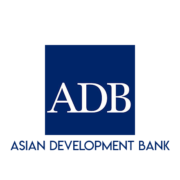MANILA, PHILIPPINES (4 September 2018) — The Asian Development Bank (ADB) is helping countries in Asia and the Pacific leverage digital technologies for development, while implementing digital reforms within its own institution, said ADB President Mr. Takehiko Nakao during a 2-day forum being held at ADB headquarters.
The Digital Development Forum 2018 provides a venue for high-level discussions on the use of information and communications technology (ICT) for development in region. During the forum, leading technology experts will give presentations and workshops to more than 300 participants from development institutions, government agencies, academe, and the private sector, as well as to ADB staff.
“The world is again in a time of immense change being brought about by the 4th Industrial Revolution,” said Mr. Nakao in his opening remarks at the forum. “With appropriate policies, the developing countries of Asia and the Pacific stand to benefit tremendously in this new era. I see great opportunities, as well as challenges.”
Digital technology is rapidly developing in diverse fields. New tools like mobile communications, robotics, and artificial intelligence (AI) are bringing profound changes to the way people live, work, interact, and do business. To help countries leverage digital technologies for development, ADB created the Digital Technology for Development Unit in March 2018. It is also implementing new digital reforms that focus on innovation and support dramatic modernization of business processes.
ADB has actively started to promote digital technologies in its operations. In education, computer-based adaptive learning and remote technologies will enhance learning outcomes in schools. Telemedicine, AI, and the use of big data will have great potential to improve health services. Fintech will help the poor to access financial services.
Over the last 8 years, ADB has approved 450 projects that have ICT components. Moving forward, ADB will deliver integrated solutions in the areas of “smart cities,” “e-government,” and “e-commerce.”
In addition to the use of digital technologies in its operations, ADB is helping build an enabling environment for countries to better use digital technologies. This includes (1) reliable ICT infrastructure, (2) skilled human resources, and (3) enabling policies and regulatory environments.
To help build ICT infrastructure, ADB, for instance, is financing a submarine cable system between Palau and Guam to provide affordable broadband internet to Palau. To build skilled human resources, ADB supported the technical and vocational training system in Sri Lanka to provide better job opportunities for graduates with high ICT skills. And, as part of its efforts to support enabling policies and regulatory environments for digital technologies, ADB’s new country partnership strategy in the Kyrgyz Republic will support the national initiative on digital transformation.
Turning to ADB’s own digital reforms, Mr. Nakao said that new digital technologies will strengthen ADB’s operations, financial services, administration, and knowledge services in line with its new long-term Strategy 2030. He emphasized that the willingness of staff to embrace change was key for the reforms’ success.
During the Digital Development Forum, ADB will sign a cooperation agreement with the Asian Institute of Management (AIM) to collaborate on research and development of innovation programs and activities, and capacity building and the promotion of innovation programs at both institutions.
As a pre-event, the two institutions held the ADB–AIM Hackathon 2018, where youth and start-ups from around the world presented innovative solutions to various development challenges. Click hereto see the list of teams that won the competition as they provided solutions for Know Your Customer, Health Solutions for Rural Health, and Digital IDs.
ADB is committed to achieving a prosperous, inclusive, resilient, and sustainable Asia and the Pacific, while sustaining its efforts to eradicate extreme poverty. Established in 1966, it is owned by 67 members—48 from the region. In 2017, ADB operations totaled $32.2 billion, including $11.9 billion in cofinancing.
–
This article was first published by the Asian Development Bank (www.adb.org).




